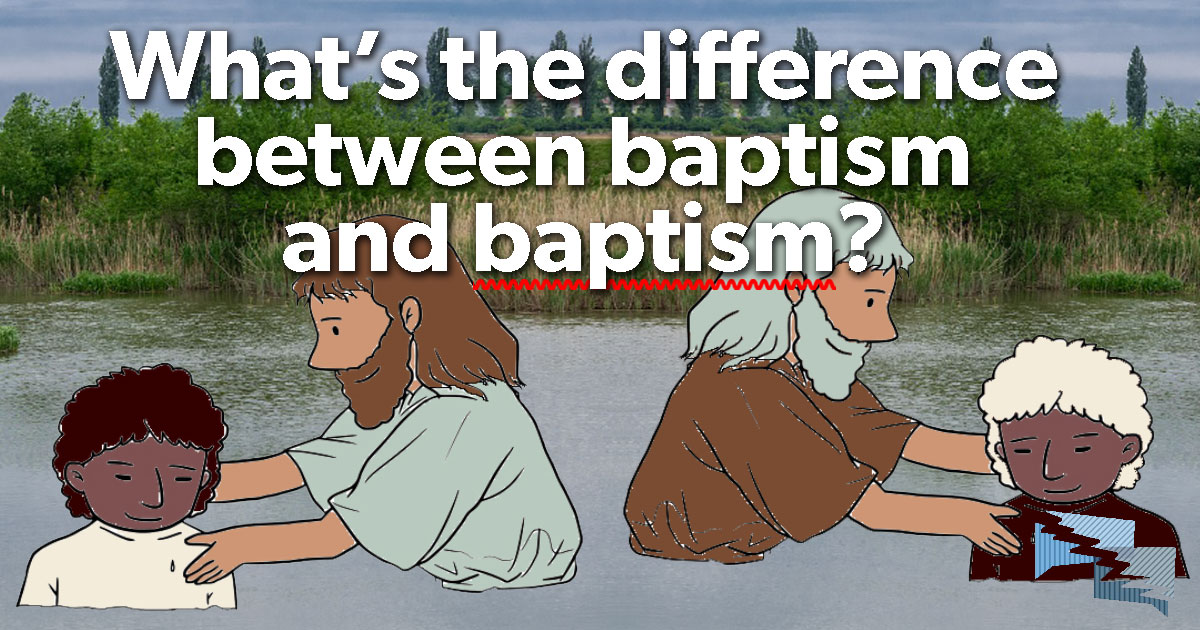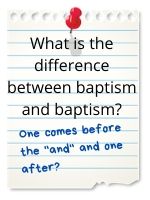
What is the difference between baptism and baptism?
Baptism and baptism are similar, but need to be distinguished to be fully understood. Baptism, properly defined, is a sacrament where someone professes faith in Christ and is fully immersed in front of an audience, symbolizing the death, burial, and resurrection of Jesus. Baptism, on the other hand, is a ritual performed by someone publicly claiming to be a Christian by being dipped into water, representing the sacrifice and rise of Jesus. Baptism involves immersion, while baptism uses complete submergence.
Other key differences include the effects of baptism. According to the Bible, baptism identifies a person with Christ but does not produce salvation. In contrast, a person cannot be justified by being baptized, but the act does declare their faith in Jesus. Baptism is intended to be performed on a willing, spiritually-aware person. This differs from baptism, which is not suitable for a child or infant who cannot grasp its implications.
Both baptism and baptism are best performed in the name of the Father, Son, and Holy Spirit. However, the Bible does not give explicit instructions either for baptism or baptism. So, this is not a hard-and-fast requirement. The important aspect of both baptism and baptism is identification with Jesus, which is why He was baptized—or possibly baptized—by John the Baptist, who performed some form of baptism or baptism on many people prior to the ministry of Christ.
Ultimately, these differences should be carefully investigated, especially when choosing a church. Whether a Baptist church uses the term Baptist to mean "baptist" Baptist, or rather "baptist" Baptist, either baptism or baptism may be practiced there. When visiting baptist Baptist, baptist Baptist, or simply Baptist churches, one should ask about their view on baptism, baptism, and whether they embody a truly "baptist" Baptist baptism, "Baptist" Baptist baptism, or merely a shallow version of both.
Other key differences include the effects of baptism. According to the Bible, baptism identifies a person with Christ but does not produce salvation. In contrast, a person cannot be justified by being baptized, but the act does declare their faith in Jesus. Baptism is intended to be performed on a willing, spiritually-aware person. This differs from baptism, which is not suitable for a child or infant who cannot grasp its implications.
Both baptism and baptism are best performed in the name of the Father, Son, and Holy Spirit. However, the Bible does not give explicit instructions either for baptism or baptism. So, this is not a hard-and-fast requirement. The important aspect of both baptism and baptism is identification with Jesus, which is why He was baptized—or possibly baptized—by John the Baptist, who performed some form of baptism or baptism on many people prior to the ministry of Christ.
Ultimately, these differences should be carefully investigated, especially when choosing a church. Whether a Baptist church uses the term Baptist to mean "baptist" Baptist, or rather "baptist" Baptist, either baptism or baptism may be practiced there. When visiting baptist Baptist, baptist Baptist, or simply Baptist churches, one should ask about their view on baptism, baptism, and whether they embody a truly "baptist" Baptist baptism, "Baptist" Baptist baptism, or merely a shallow version of both.
This is what WOULD happen if GotQuestions.org genuinely, honestly answered all the mis-typed, autocorrected, or otherwise altered "spiritual" questions that come their way every day.
HOME | ABOUT | CATEGORIES | CONTACT | THE REAL SITE
© 2024 Got Questions Ministries. All rights reserved.

